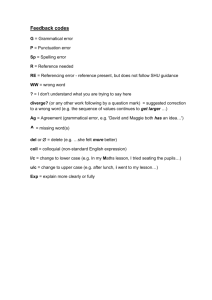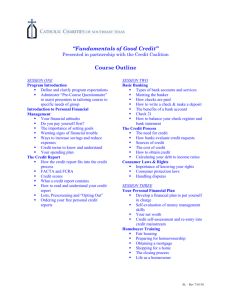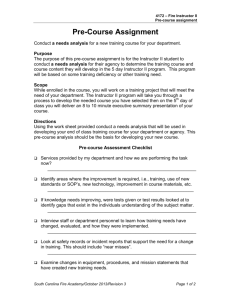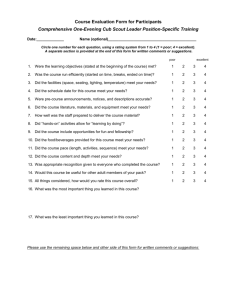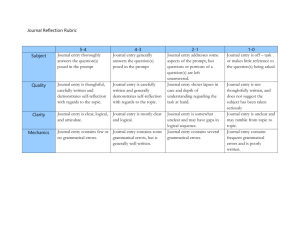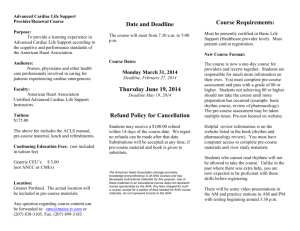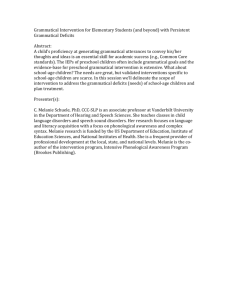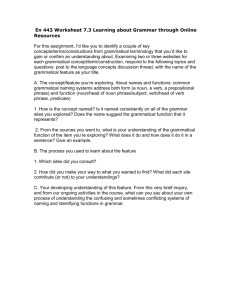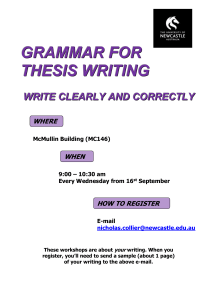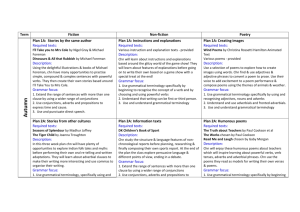PGCE Primary/ Early Years Pre
advertisement
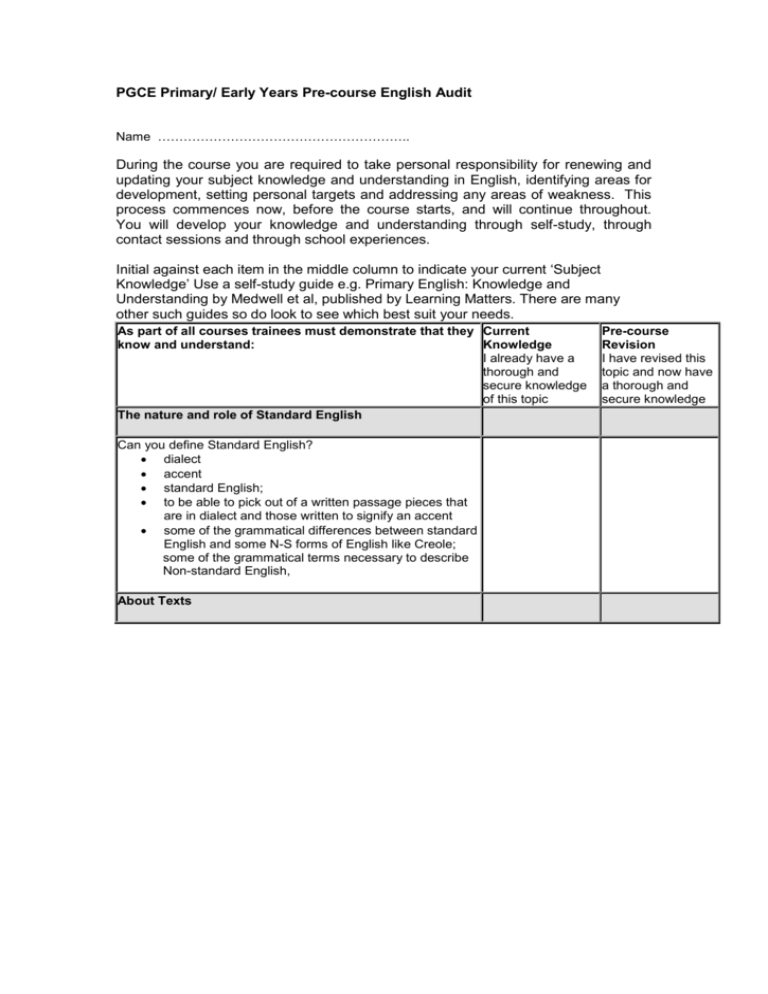
PGCE Primary/ Early Years Pre-course English Audit Name ………………………………………………….. During the course you are required to take personal responsibility for renewing and updating your subject knowledge and understanding in English, identifying areas for development, setting personal targets and addressing any areas of weakness. This process commences now, before the course starts, and will continue throughout. You will develop your knowledge and understanding through self-study, through contact sessions and through school experiences. Initial against each item in the middle column to indicate your current ‘Subject Knowledge’ Use a self-study guide e.g. Primary English: Knowledge and Understanding by Medwell et al, published by Learning Matters. There are many other such guides so do look to see which best suit your needs. As part of all courses trainees must demonstrate that they Current know and understand: Knowledge I already have a thorough and secure knowledge of this topic The nature and role of Standard English Can you define Standard English? dialect accent standard English; to be able to pick out of a written passage pieces that are in dialect and those written to signify an accent some of the grammatical differences between standard English and some N-S forms of English like Creole; some of the grammatical terms necessary to describe Non-standard English, About Texts Pre-course Revision I have revised this topic and now have a thorough and secure knowledge Do you know the text structure and key language features of the following genres: Narrative, e.g. fables and fairy stories, including sequencing events, plot line, climax and resolution, characterisation and the use of temporal connectives. Poetry – the structure of various forms, e.g. haiku, sonnet, couplet, limerick as well as language features, e.g. simile metaphor, personification, alliteration and assonance. Non-fiction – the structure and language features of non-fiction genre, e.g. recounts, reports, explanations, instructions, persuasion and discussion? Do you know how to evaluate texts critically: Are you able to discuss the devices used by authors to create desired effects, convey meaning…? The spoken and written language systems of English Lexical Can you explain the difficulties of representing the (approximately) 44 phonemes of English with only 26 letters of the alphabet? Do you understand technical terms? Can you segment words by phoneme? Do you know the difference between a digraph and a blend? Can you define terms such as morpheme (bound and unbound), root, suffix, prefix? Do you know what synonyms and homonyms are? Can you explain how derivational suffixes change the function of a word in a sentence or form new words? Do you know how inflectional suffixes are grammatical in function? Grammatical Do you know the 8 main word classes? Can you define a sentence? Do you understand the subject and predicate? Can you explain the difference between a simple, compound and complex sentence? Can you identify components of sentences – phrases, clauses, and define a main clause, subordinate clause and an adverbial phrase? Do you know what a compound word is? Can you explain the difference between an active and a passive sentence? Can you describe the differences between first, second and third person? Do you know the different types of verbs and how verbs change according to tense? Finite and non-finite verbs? Verb tense? How to write in the first, second and third person? Present and past participles? Punctuation Can you identify common errors such as the comma splice and suggest alternatives? Do you know when you can use a semicolon? Do you know when you can use a comma? Can you explain how to use an apostrophe to show possession? Omission? Can you explain and use other punctuation marks? Are you aware of the conventions of punctuating dialogue? What grade would you give yourself after your first pre-course audit? Initial and date below in the right-hand column. After doing your pre-course revision, what grade would you now give yourself? Again, initial and date in the right-hand column. Initial and date A You have secure knowledge and understanding of all the subject items. You see and understand the links between your knowledge of the spoken and written systems of language and your knowledge of children’s texts and can use that understanding for planning, to respond to pupils’ learning needs as speakers, listeners, readers and writers. B You have secure knowledge and understanding of almost all the subject items. You have action planned to address any misconceptions and gaps in knowledge before the end of the course. You can see connections between your understanding and the needs of developing readers and writers in school but need to extend this knowledge through further experience. C You have adequate knowledge and understanding of the majority of the subject items. You have action planned to address any misconceptions and gaps in knowledge before the end of the course and view this as a priority during University and school-based training. D You have serious weaknesses in knowledge and understanding of a majority of the subject audit items. You will need to provide abundant evidence of you successfully addressing all of your misconceptions and gaps in knowledge before the end of the course. You will need to work very hard to satisfy the requirements for qualified teacher status and for the successful completion of the course. REMEMBER TO BRING THIS COMPLETED AUIDT TO YOUR FIRST ENGLISH SEMINAR SESSION
